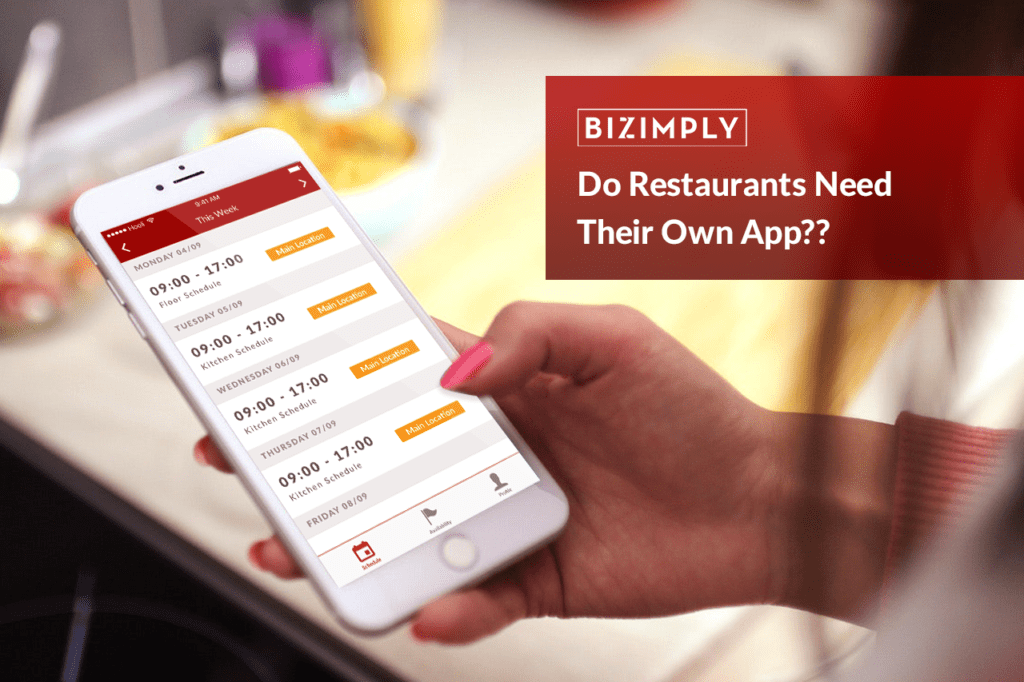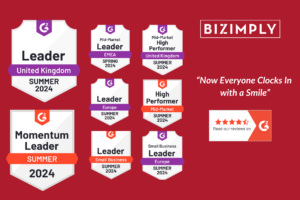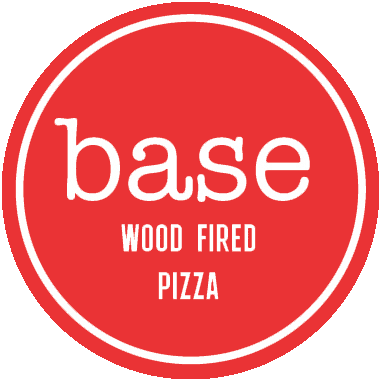Do restaurants need their own app? Are they an advantage? Let’s look at why they could be important for restaurants:
A smartphone society
In the UK we are spending approximately two hours online on our smartphone every day – double the time spent on PCs. Smartphones have become the hub of our daily lives. According to Deloitte’s sixth annual Mobile Consumer Survey, 4 out of 5 UK adults now have smartphones. For the younger generation, the expectation is there that businesses, including restaurants, remain up to date with the latest technology and invest in mobile-optimised sites (at a minimum) and now – apps. Although apps aren’t as popular with small restaurants as their larger counterparts, the risk of being reactive to this growing trend includes being left behind to the competition, as well as missing out on larger profits.
The difference between a website and an app
By having an app, as opposed to just a website, restaurants can further engage with their customers, provide updates on the menu, gallery, or restaurant locations, inform customers about promotions and special offers, and give users access to special, privileged discounts – increasing customer satisfaction and word-of-mouth recommendations.
With a website, your restaurant is limited to the information available to the customer at the time they navigate the site. Whereas with an app, you can send them push notifications whenever you like, and even prompt push notifications based on factors like their behaviour within the app or their current location.
When a customer browses your website, you hope they have an interest in your restaurant. When a customer downloads your app, you know they have an interest in your restaurant. These customers are easier to market to and more likely to become promoters. Rewarding loyal customers is good for business and you can easily set up a rewards program through your app, ensuring they feel valued.
The power of the app lies in the data you can gather on your customers (allowing you to make smart business decision on things like the menu and price point) and the earning potential it provides your business, being able to access to your customers at all times (for example, sending customers time-sensitive, enticing offers for to dine during lull-periods of your restaurant, in order to boost sales).
What’s the competitive advantage?
You’ve likely heard of Just Eat, Open Table and Hungry House. These business utilise apps to the advantage and disadvantage of restaurants. You can advertise your restaurant with them, making it possible for a wider audience to view your menu and place an order or make a booking. However, doing so means a reduction in profit, as they charge a fee for these services.
By having your own app, you can choose to make the above a part of your marketing plan (or not at all), and be open to accept direct bookings and orders. Taking bookings on your app makes things convenient for customers, who don’t have to call up the restaurant (something that is proving to be less popular in recent years). Having an app also allows your customers to avoid delays or barriers with orders and bookings. They have the convenience of placing orders through the app with ease, instead or reaching a busy line when calling to order during busy periods. They have the convenience of paying for food at the restaurant using the app, reducing the risk of having to wait for busy waiters or queue for long periods at the register.
Finally, having an app gives you a competitive advantage over rival restaurants, both in terms of user experience and with the ability to send push notifications by location, enticing customers nearby to dine at your establishment when they are nearby. Smartphone users looking for restaurant information on their phones are highly likely to act as a result. This means that potential customers searching for a place to eat nearby are much more likely to follow up and visit your restaurant.
What are some other benefits?
Some of the other noticeable benefits of having a restaurant app include:
- Social media integration for increased social proof, as well as access to more communications (informative videos, enticing photos, competitions etc.)
- Providing a one stop shop for the user (where the restaurant’s menu, location, contact, one-click calling, image gallery, promotions, daily specials etc. are all available on one platform).
- The ability for customers to submit comments and feedback and write reviews (spreading the word on your business and increase customer satisfaction by making the customer feel heard).
- A cheap and easy way to communicate with customers. The delivery of push notifications is far higher than with email, SMS and direct mail, not to mention less expensive.
- Brand recognition and reinforcement. What really benefits a business and helps build a relationship with the customer are regular, relevant points of contact (such as a push notification for a special offer on a chicken dish, based on the customer pattern of having previously chosen similar) so that the restaurant remains in the forefront of the customers brain.
You’ve read about how apps can be a benefit to your business from a customer perspective, but how can apps be used to manage a restaurant itself? Check out this blog on 10 apps to manage your bar or restaurant in 2017 for some great ideas.
This guest post was by Jake Bellamy, Social Media and Digital Marketing at WUKBUK. WUKBUK specialise in personalised apps for restaurants and other businesses. Get in touch with them today on 01524 544 744 or head to their website wukbuk.com














